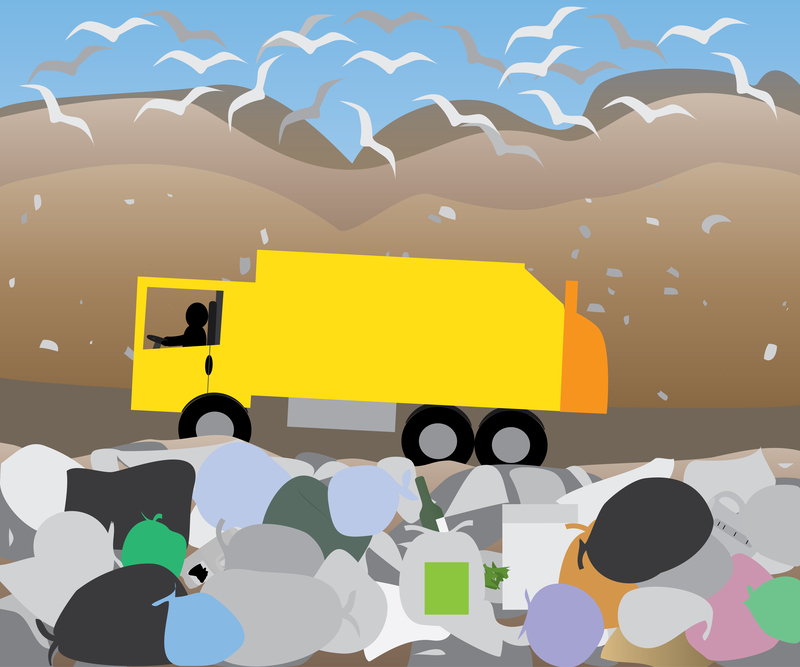Simple Tips for Eco-Friendly Living
Posted on 19/06/2025
In an era where environmental consciousness is rapidly growing, embracing an eco-friendly lifestyle has become more important than ever. Sustainable living not only benefits the planet but also fosters a healthier and more fulfilling life for us and future generations. If you're looking to make a positive impact without overhauling your entire lifestyle, this article is for you. Here, we provide simple yet effective tips for eco-friendly living that you can easily incorporate into your daily routine.
Reduce, Reuse, and Recycle
The mantra of reducing, reusing, and recycling can significantly minimize waste and alleviate the pressure on our planet's resources.
Reduce: Start by reducing your consumption. Evaluate your needs versus wants and make mindful purchasing decisions. Opt for products with minimal packaging or those made from sustainable materials.
Reuse: Give items a second life. Reuse jars for storage, repurpose old clothes into cleaning rags, and opt for reusable shopping bags over single-use plastic bags.
Recycle: Be diligent about recycling. Ensure items like paper, glass, and certain plastics are properly sorted and placed in recycling bins. Familiarize yourself with local recycling guidelines to maximize your efforts.

Save Energy
Saving energy is not only beneficial for the planet but also for your wallet. Here are some easy ways to cut down on your energy consumption:
Unplug Electronics: Turn off and unplug devices when they're not in use. Many electronics draw power even in standby mode, so unplugging can lead to noticeable savings.
Switch to LEDs: Replace incandescent bulbs with energy-efficient LED lights. They use less electricity and have a longer lifespan.
Use Energy-Efficient Appliances: When it's time to replace household appliances, opt for energy-efficient models that are Energy Star certified.
Conserve Water
Water conservation is critical for maintaining our planet's limited fresh water resources.
Fix Leaks: Regularly check for and repair any leaks in your home. A dripping faucet can waste gallons of water over time.
Install Low-Flow Fixtures: Low-flow showerheads and faucets reduce water usage without sacrificing water pressure.
Shorten Showers: Aim to take shorter showers and turn off the tap while brushing your teeth or shaving.
Choose Sustainable Transportation
Transportation is a significant contributor to carbon emissions. By making smarter transportation choices, you can lessen your environmental impact.
Public Transit: Use buses, trains, and other forms of public transportation whenever possible.
Carpool: Share rides with friends or colleagues to reduce the number of vehicles on the road.
Walk or Bike: For shorter trips, consider walking or biking instead of driving. It's a great way to reduce emissions while getting some exercise.
Eat Sustainably
Your diet has a significant environmental impact. Eating sustainably can reduce resource use and pollution.
Choose Local and Organic: Support local farmers by purchasing organic produce. It's often fresher and reduces the carbon footprint associated with transporting food.
Reduce Meat Consumption: Meat production is resource-intensive. Try incorporating more plant-based meals into your diet.
Avoid Food Waste: Plan meals and store food properly to minimize waste. Compost food scraps when possible.
Pros and Cons of Eco-Friendly Living
Pros:
- Reduces carbon footprint and environmental impact.
- Can lead to cost savings in the long run.
- Promotes a healthier lifestyle.
- Contributes to the preservation of natural resources.
Cons:
- Can require initial time and financial investment.
- May involve lifestyle changes and adjustments.
- Limited availability of eco-friendly products in some areas.

Takeaways
Living an eco-friendly lifestyle doesn't have to be drastic or daunting. Small, consistent changes can make a substantial difference. Whether it's reducing waste, conserving energy, or making sustainable food choices, every bit helps. Educate yourself, make conscious decisions, and gradually incorporate these tips into your daily life for a greener, better future.
Conclusion
Simple changes in daily habits can accumulate to make a significant impact on the environment. By reducing waste, conserving resources, and making sustainable choices, you can contribute positively to the health of our planet. Embrace these tips for eco-friendly living to not only reduce your environmental footprint but also to cultivate a healthier, more sustainable way of life.
Latest Posts
UK Rubbish Removal: How It Operates
Creative Ideas for Reusing Wrapping Paper










